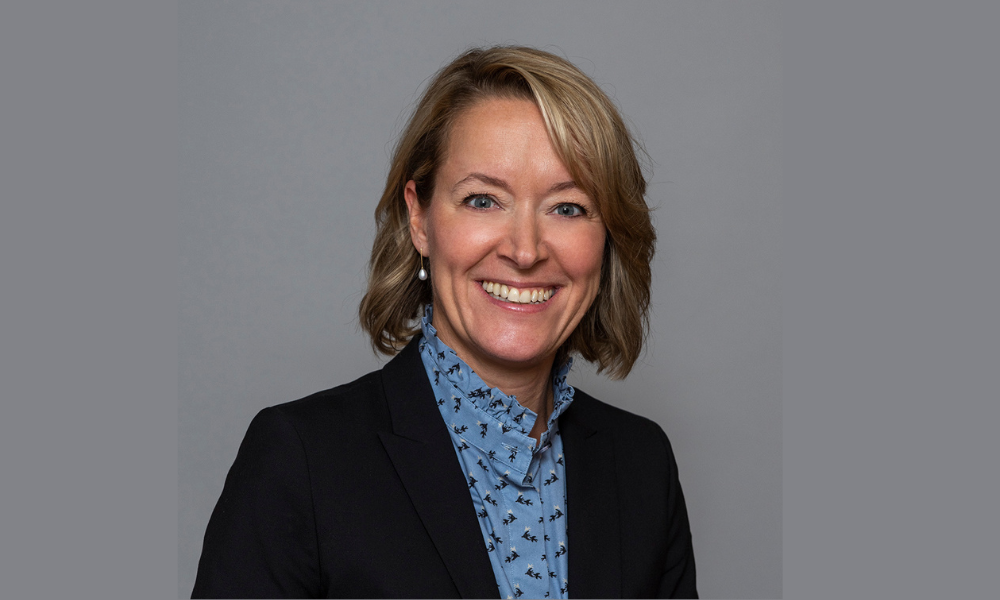Marsh McLennan leader on a "new era of risk"

Marsh McLennan leader on a “new era of risk” | Insurance Business America
Risk Management News
Marsh McLennan leader on a “new era of risk”
“If you pull one strand, everything starts moving around”
Risk Management News
By
Mia Wallace
For 19 years, the World Economic Forum’s Global Risks Report – which is produced in partnership with Marsh McLennan and Zurich Insurance Group – has provided a timely, albeit often sobering, snapshot of how the complex nature of the global risk landscape is leaving societies, communities, businesses and individuals vulnerable to new and resurgent risks.
During the launch of the 2024 edition of the report in London yesterday, Carolina Klint (pictured), chief commercial officer, Europe at Marsh McLennan, highlighted that with so many conflicting concerns vying for attention, the polycrisis environment that has shaped the global risk landscape in recent years is showing no signs of abating.
“The current risk landscape is looking down into a big bowl of spaghetti,” she said. “Everything is interconnected. If you pull one strand, everything starts moving around and it’s not easy to figure out where to start, to untangle this mess.”
The challenge presented by ‘layered risks’
Speaking with Insurance Business, Klint noted that the challenges are being presented not just by how one risk is exacerbating another, but also by the layering of risk as ‘layered risks’ make it especially hard to predict the chain of consequences resulting from a single event. One example of this interconnectivity at play, she said, is the knock-on effect of the historically low water levels of the Mississippi River last year.
“That made it difficult to get fertiliser into the US, but it also made it difficult to export grain,” she said. “But one unexpected consequence of that was that it was really difficult to get any glycol into airports in the US. And given the environmental impact of extreme weather events that cause huge winter storms in the US, that meant airports did not have de-icing equipment, they didn’t have glycol.”
This, in turn, has led to the grounding of entire fleets – all as a consequence of the lower water levels of the Mississippi River, which just reflects how difficult it can be to understand the full chain reaction of any one risk. As a long-term advocate for businesses finding better ways to balance a short-term view of their risk profile with a longer-term view, Klint said she recognises the very human impulse to concentrate just on what’s pressing right now.
“As humans, we’re wired to look at exactly what is in front of us, and actually, the past number of years have presented us with lots of opportunities to practice crisis management,” she said. “But when you’re in crisis management mode, you don’t necessarily have that long-term view on risk and how to build resilience for the future. And I think that is the risk we’re running.”
How long-tail risks are evolving into more immediate concerns
What’s especially interesting about this year’s Global Risks Report, Klint said, is how some longer-stem, systemic risks are now being featured in the shorter-term risk horizon of the over 1,400 global risk experts, policymakers and industry leaders surveyed in September 2023. For instance, extreme weather events and cyber insecurity both rank among the top 10 risks facing the world in the next two years, as well as ranking as longer-term risk concerns.
It’s great to see that cyber risk, in particular, is finally on the board of both the short-term and long-term concerns facing the global risk environment, Klint said. She believes that the evolution of some of the more traditionally longer-term risks into shorter-term considerations might act as a trigger encouraging more and more fruitful conversations about risk mitigation, transfer and management.
Having better conversations about the changing nature of risk
The hope is that seeing first-hand how longer-term risks can become more urgent concerns over time, will act as a “wake-up call”, she said, and encourage businesses to strike that critical balance between what’s facing them now and what’s coming for them further down the line.
“We’re entering into a new era of risk now and it’s time to be a little bit more creative and collaborative in our approach to building resilience,” Klint said during the Press briefing launching the report. “Because it is only by working together that we can reduce uncertainty, improve risk investment decision-making and responsiveness and build long-term resilience on a global scale. It’s time now we start thinking about collaboration, resilience and how to address these risks for the common good.”
Related Stories
Keep up with the latest news and events
Join our mailing list, it’s free!






